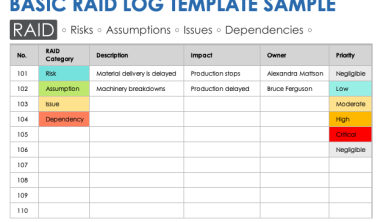The Project Management Professional certification, or the PMP certification, is probably not the first certification that comes to mind to advance or start a career in software engineering. Many engineers are constantly learning new languages and technologies in a very dynamic field, so certification in project management is not on many radars. However, project management is growing in other fields than in tech, and project managers are in high demand. The average annual base salary for a project manager in the United States is $75,474, but in tech, project managers can expect to take home an average annual base salary of $97,000.
More Reasons Why Tech Wants Project Management
The tech scene has a celebrity status right now, and tech is an exclusive club because the work is notoriously difficult. Based on this, one could imagine just how difficult project management in tech is. IT projects that are not managed well are often late and over-budget, with one in six projects turning into a ‘black swan’ – projects with a cost overrun of 200% and a schedule overrun of 70%. Bad project management in IT can cause companies to rack up losses, such as KMart losing $1.2 billion due to their failed IT modernization project.

Based on these problems, you can imagine why many tech companies look towards getting good project managers, especially PMP certified project managers. The Project Management Institute states that even though 93% of organizations say they use standardized project management practices, in actuality only 23% use standardized project management practices throughout the entire organization. Also, only 58% of organizations fully appreciate the value of project management. Another problem is that as much as 68% of employers outsource project managers. Yes, this may be due to cost-cutting measures, but many times project management expertise is outsourced due to lack of talent and qualifications.
About the PMP
Before we get into answering the question of whether or not software engineers learning PMP is worth it, let’s just understand what the PMP certification is. The PMP certification was born from the PMI to show employers that an individual has the necessary skills to bring a project to fruition. Unlike many other certifications in the software and tech space, a PMP certification is industry-agnostic, meaning that you can use it in just about any field such as finance, government, defense, and of course, tech.
The PMI packed everything a qualified project manager should know into the PMBOK® Guide. PMBOK® stands for Project Management Body of Knowledge, and it was first published in 1996 as a set of rules to show how best to manage individual projects. This guide is the Bible of PMP and has all the principles, rules, and methods that make a PMP certified project manager great. It doesn’t matter where you are in the world, being PMP certified will put you ahead anywhere you are.
Some Reasons People Get PMP Certified
Not many people want to admit it, but money is one of the biggest, if not the biggest motivator for any job. There are so many reasons why project managers and others get PMP certified, but it doesn’t hurt that PMP certified project managers earn 20% more than their peers. The other perks include networking opportunities, as the PMI regularly puts on events through their various chapters. Another great thing about the PMP certification is that it respects and acknowledges the fast-pace and dynamism of today’s job market. Every three years a certified person must take the necessary steps to earn professional development units (PDUs).
The Importance of the Project Manager in Software Development
The PMBOK® defines project management as the application of knowledge, skills, tools, and techniques to consolidate and leverage human and material resources so that the project life cycle can meet its cost, scope, quality, time, and customer satisfaction requirements. In a way, the software engineering process is similar, as material resources such as code blocks and tools are leveraged along with human and infrastructural resources to create software in a highly disciplined and quantitative process. Let’s compare diagrams for system/software development and project management.

Waterfall product development process for a single client, courtesy of PMI

Waterfall product development process for multiple clients, courtesy of PMI
The software development process is about the technical aspects of completing a project. These technical aspects follow a set of rules and guidelines set out in software engineering fundamentals. But the act of getting this process started and getting the completed product to the customer is what product management is about, which is why they go hand-in-hand so well. The project manager’s job is to know who their client is, and what steps to take to deliver the best product to the client(s). Each of these steps has its guidelines and its own recommended times for completion. Software engineering is all about the steps to get to the completion of a project, while project management looks at the bigger picture and defines the HOW and WHY in getting to the goal.
One important step that is a part of the engineering process but is done better in the project management process is the product roll out step. Product roll-out and logistical issues are often not defined in the engineering process, and sometimes this causes delays and customer satisfaction issues. Good project management defines this at the beginning of the cycle. Having a PMP certification empowers managers to identify risks and problem areas such as product roll out in delivering the finalized product to the client(s). Even in an Agile work environment where each employee is given a lot of freedom in projects without much need for managers, having team members that are PMP certified will result in smoother transitions between steps of the engineering process, and a timely roll out to customers.
Other Reasons for Project Management Importance
Just as in other fields, software engineering often requires applicants to have PMP credentials to fill a project management role. Software engineers are grouped by their experience levels and seniorities, such as L1, L2, and L3 (T1, T2, and T3) engineers. The higher your position, the more you’re expected to take on leadership roles. In many companies, even if they may not hire separate project managers for different projects, they will give the role to individuals they believe have the skill and the knowledge to tackle that very project. Regardless of what their background is like, these individuals will have to follow many of the rules laid out in the PMBOK® and other project management guides and manuals. Because of this, it just makes sense for senior software engineers to get PMP certified.
You can indeed get hired for project management roles without a PMP qualification, but it does stick out like a sore thumb to recruiters, and your chances of getting hired increases. Getting PMP certified doesn’t automatically make you a better project management professional, but it does give you the skillset to become a better project management professional. Getting PMP certified is all about showing your employers that you want to climb the ladder of the organization that you’re at. It shows them that they can call on you when a leader in any capacity is needed, and it can help you get promoted, even though the position may not be PM-related. Being PMP certified is such a great gauge for commitment simply because the person that qualifies has to have thousands of hours of project management experience.
How to Jump Right In
You have decided that it is indeed worth it for a software engineer as yourself to get PMP certified. First of all, ensure that you remember this certification is for proven leaders, meaning you are either a Team Lead, a manager, or some other leader with years of experience in project management. No matter which position you are in, you will have to have the correct leadership qualifications. Hence, if you are a laid-back software engineer who is agreeable and has been doing everything a team leader says, the PMP certification is not for you. The PMP program looks for team leaders, which means you will have to have years of experience in not only leading teams but leading teams in completing projects. To qualify for the PMP exam, an applicant would need a Bachelor’s degree with 3 years of project management experience or an Associate’s degree with 5 years of project management experience.

Once you have determined that you qualify, you will have to look at the time that you have. This doesn’t only include the time it would take to do the exam, but the time it would take to prepare for the exam as well. The PMI requires 35 contact hours in preparation for the PMP exam, meaning they want proof that you attended some kind of training program that would help you prepare for the exam. This means that you will most likely need to request time off from your job to do a program like PMTI’s, which gives a 4-day live in-person PMP boot camp and a 4-day live online PMP boot camp. We also do a self-study program for those who will not have the amount of time per day to complete the whole program in just 4 days.

Scrum - the widespread methodology used in Software Development Projects in line with PMP-based management frameworks.
Consideration must also be made for commute time, which can be a nightmare for those living in large cities such as New York and San Francisco. Yes, large cities have common modes of public transportation, but it also has a lot of traffic and delays as well. If you choose a PMP exam preparation program such as PMTI’s 4-Day Live Boot Camp Experience, it is best to consider the distance between your residence and the training center.
Another thing that would need to be considered before signing up for the PMP exam is your readiness. Even if you have the right leadership qualifications, actually being qualified means being able to handle the stress that this program will bring. The PMP exam is 200 multiple choice questions and they’re not easy. Many people choose to take a 4-day boot camp in-person or online, and if you are not mentally prepared for a program like that, you can lose in a variety of ways.
Conclusion
It is worth it for the software professional to get PMP certified, but they will need to think hard about all the sacrifices that will be made in getting there and after getting there. For instance, when you become an official project manager, be prepared to sacrifice the day-to-day joys of coding, testing, and everything else a regular engineer does. The project management role involves a more holistic approach to solving problems, and even though engineering expertise will help with the completion of many projects, your new role will need more than engineering knowledge to do the role effectively.
Many mistakenly believe that a PMP credential automatically qualifies you for project management roles. It doesn’t. Many great project managers are overseeing the development of important and complex software and don’t have a PMP certification. The PMP certification is there to show what you are capable of and gives you the right tools to advance your career. Having the PMP credential shows an employer that you have the right level of commitment to seeing a project to its completion, and that you have the knowledge to do so.






